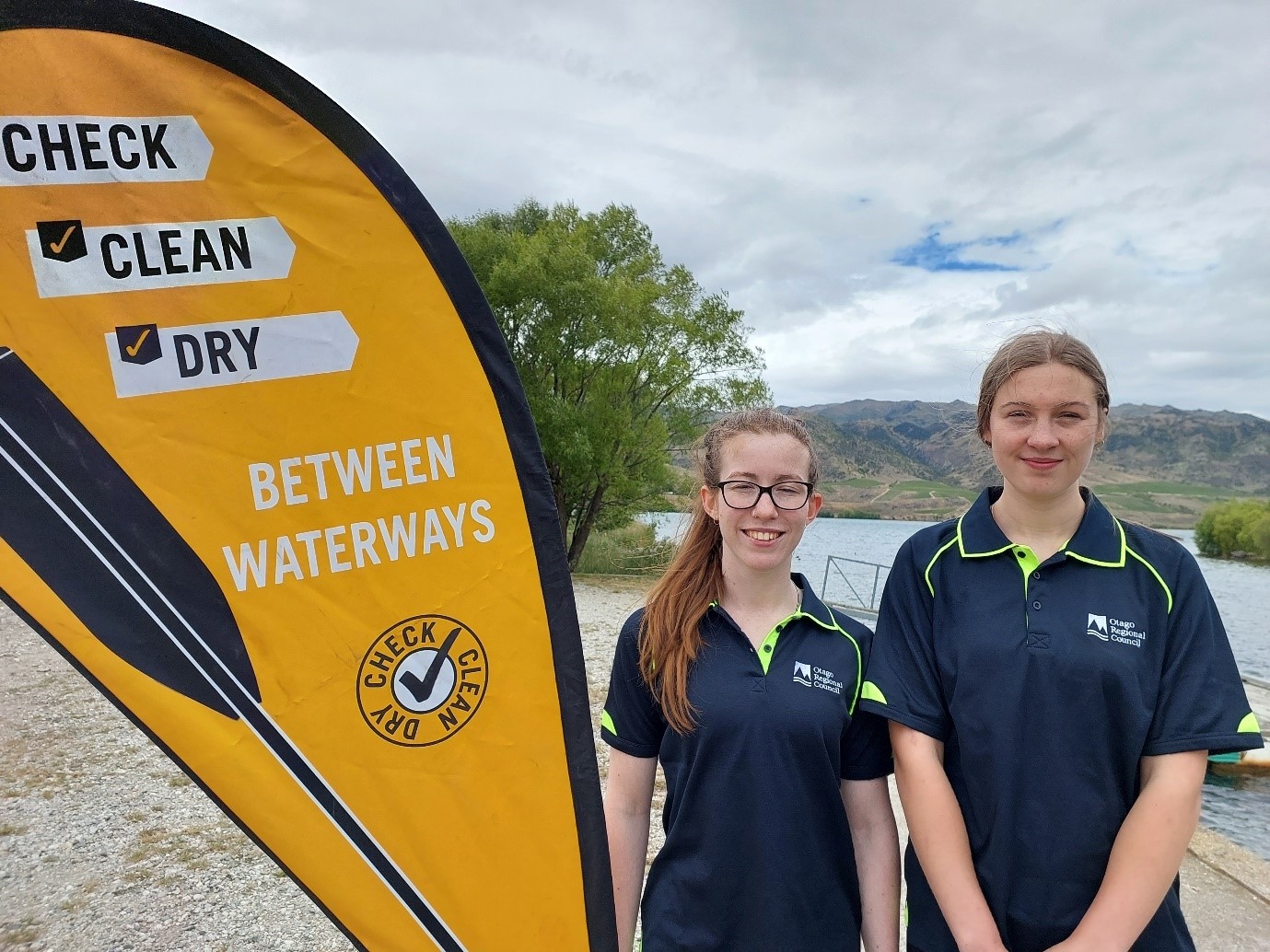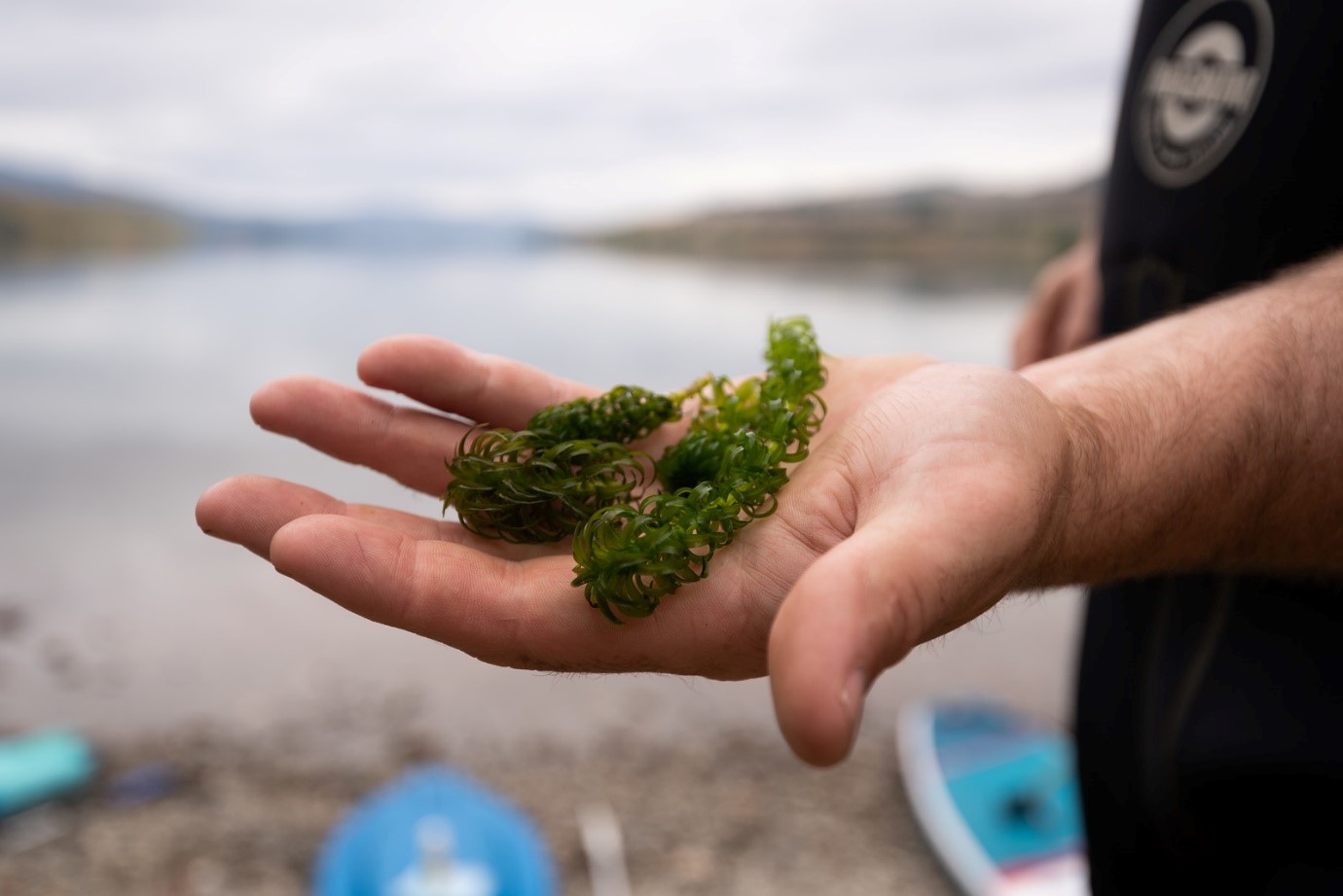Nicole Fleury and Izzy Coe will help spread the word about preventing aquatic pests in our waterways during the holiday period, from this week through to early February 2023.
Nicole and Izzy will be at a variety of spots across Otago’s lakes and rivers to survey visitors on their awareness around invasive freshwater pests such as lagarosiphon and didymo and let them know what they can do to stop their spread.
Both are passionate about conservation and protecting Otago’s waterways from invasive pests.
Nicole (24) is studying Zoology and Ecology at the University of Otago. When it comes to summer in Otago, what makes it special for her is all the unique outdoor opportunities and friendly people.
Izzy (20) is studying Environmental Science and Geography at Canterbury University. Originally from Dunedin, her favourite aquatic pastime is kayak fishing off the Otago coast.
“The best thing about Otago in the summer is the real fruit ice creams and the chance to go swimming at lunchtime,” she says. Hard to argue with that.

Caption: L-R Nicole Fleury and Izzy Coe
ORC Biosecurity Officer Central Otago Helen Walker says the face-to-face engagement the advocates carry out is an important part of getting everyone on board with the programme.
“Aquatic pests like didymo can spread very easily between waterways on people’s equipment and vessels, but a few simple steps by boaties and other visitors helps to minimise that risk,” says Walker.
“Every year, our advocates talk to freshwater users, educate them and gather data on their knowledge of freshwater pests and the Check Clean Dry method,” she says.
Last year the advocates collected roughly 850 surveys, surpassing their goal of 650 with the majority of people well aware of the Check Clean Dry message. “It’s great to see the community are doing their bit to protect our waterways,” she says.
“With a concerted effort, we can stop the spread.”

Caption: Lagarosiphon Lake Dunstan. Photo credit: Clare Toia-Bailey
As well as talking to holiday makers, the Check, Clean, Dry advocates will be at key events to demonstrate the important message to help protect our waterways; to always check, clean, then dry any equipment that comes into contact with the water, between every waterway, every time.
Check, Clean, Dry is the Ministry for Primary Industries’ method for preventing didymo and other aquatic pests.
Check - Remove any plant matter from your gear and leave it at the site (the river or lake bank) or put it in the rubbish. Don't wash plant material down any drain.
Clean - There's more than one option for cleaning your gear – choose the one that's best for your situation and your gear.
Dry - Ensure your gear is completely dry to touch, inside and out, then leave dry for at least another 48 hours before you use it (didymo can survive for months on moist gear).
“The biggest risk to Otago waterways is the further spread of lagarosiphon, didymo and lake snow,” says Walker.
“Freshwater pests, specifically lagarosiphon, could squeeze the life out of our country's most precious rivers and lakes and they can be spread by a single drop of water or the smallest plant fragment.”
